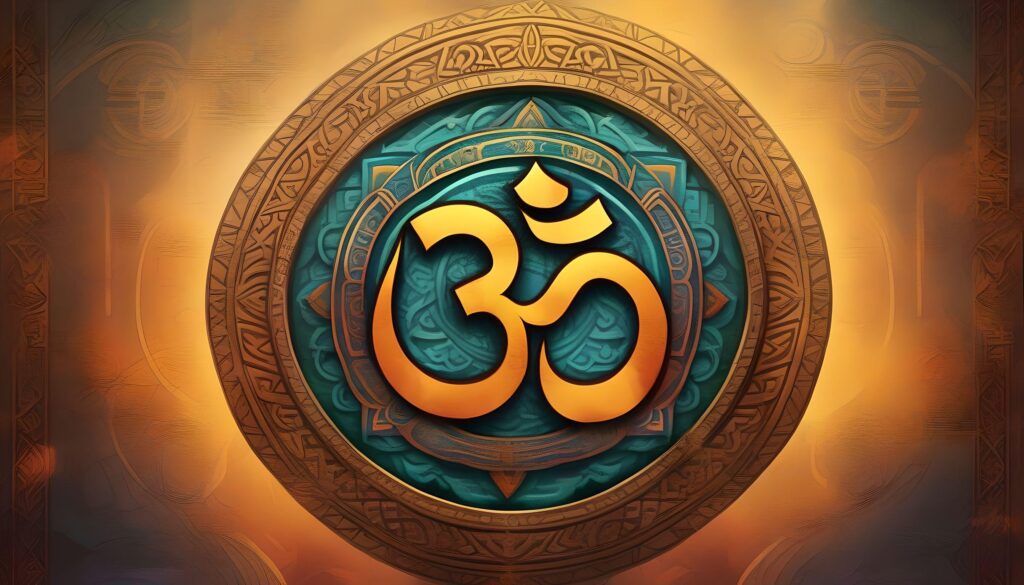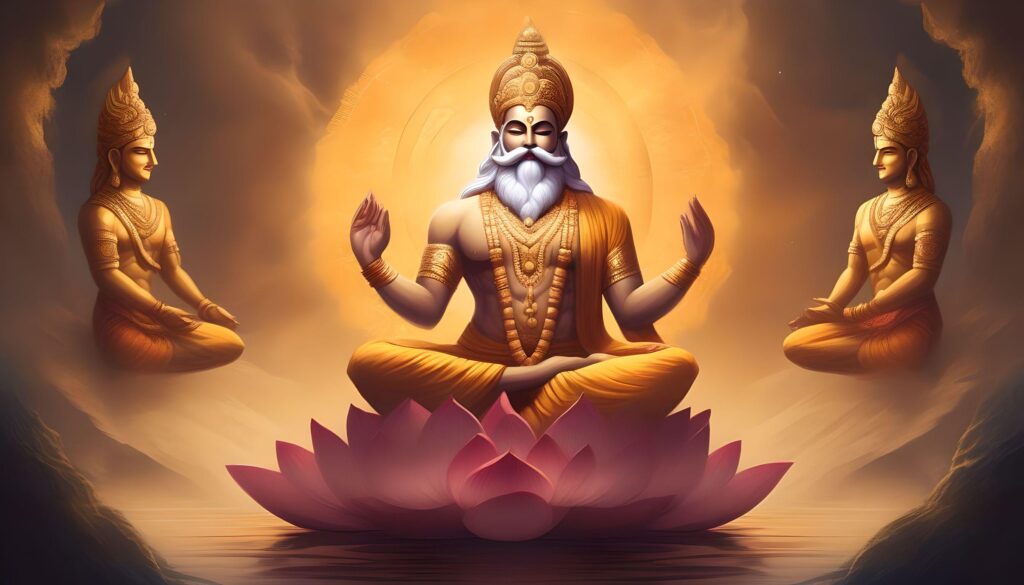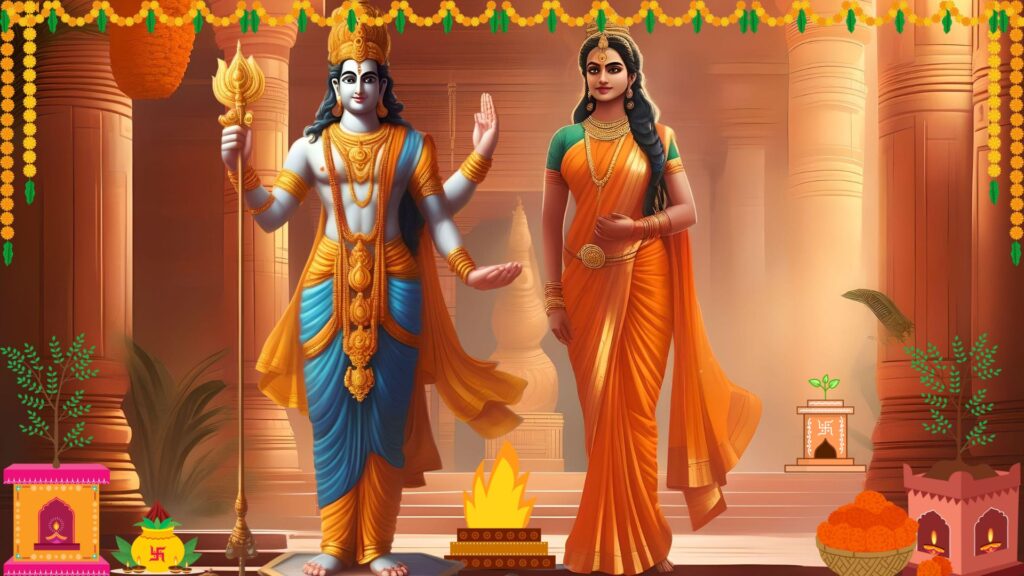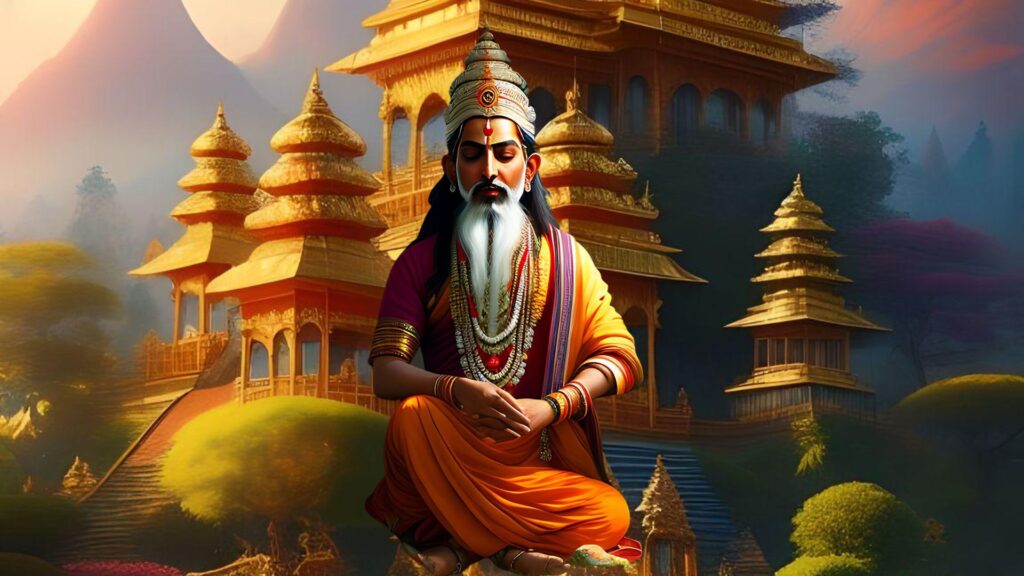What is Moksha? A Journey to Spiritual Liberation
Introduction
Within the domain of Hindu philosophy, Moksha occupies a prominent position as the epitome of the perfect human existence. Moksha, a concept originating from the Sanskrit word for “salvation,” symbolizes the soul’s emancipation from the perpetual cycle of rebirth. The Hindu belief system is grounded in the concept of karma, which posits that the future lives of individuals are determined by the consequences of their past actions. In addition to the pursuance of dharma (obligation), artha (wealth), and kama (desire), the ultimate objective for all individuals is to achieve moksha. This article will undertake an in-depth analysis of the Hindu philosophical concept of Moksha, examining its significance, meaning, and the means by which it can be achieved.
Understanding Moksha
Liberation or Moksha, alternative terms, signifies the attainment of emancipation from the never-ending cycle of existence and demise. The soul, as per Hindu doctrine, is considered eternal and impervious to destruction, undergoing perpetual transmigration between bodies. This is exquisitely illustrated in the Bhagavad Gita through a comparison between the soul’s voyage and an individual changing clothes. Similar to how one changes clothes by discarding old garments and donning new ones, the soul adopts a new physical form with each new existence. On the contrary, Moksha symbolizes the utmost emancipation from this recurring pattern, enabling the soul to unite with the divine and achieve everlasting joy.
The Four Aims of Life
In Hinduism, there are four distinct life goals referred to as purusharthas. These objectives establish a structure for attaining a harmonious and gratifying existence. Dharma (obligation/righteousness), artha (wealth/prosperity), kama (desire/pleasure), and moksha (salvation/emancipation) are some of them. Although all four objectives are crucial, Moksha is regarded as the most significant and represents the pinnacle. By conscientiously carrying out one’s responsibilities, amassing material possessions, and deriving enjoyment from the pursuit of righteousness, one can ultimately achieve Moksha.
The Concept of the Soul in Hinduism
The comprehension of Moksha is fundamentally focused on the notion of the spirit. The soul, or atman, is considered to be omnipresent in Hinduism. It is not exclusive to the human species; rather, it is present in all living things, ranging from the most minute organism to the largest mammal. Being eternal, the soul surpasses both birth and mortality. It remains unaffected by corporeal transformations and maintains an eternal existence. It constitutes the very essence of existence. The character of the soul’s subsequent lives is determined by the law of karma, which governs its progression through various bodies.
The Role of Karma in Moksha
The principle of Karma, which governs cause and effect, is fundamental to achieving Moksha. Whether good or evil, every action generates karma, which affects the future experiences of the soul. In contrast to the accumulation of positive karma by means of virtuous actions and good deeds, which guarantees favorable future lives, negative karma is produced in the form of unfavorable circumstances. In order to achieve Moksha, it is imperative that one diligently builds positive karma by engaging in altruistic deeds, exhibiting virtuous conduct, and adhering to moral principles.
Paths to Attaining Moksha
Numerous routes, referred to as margas, are acknowledged by Hinduism as culminating in the achievement of Moksha. These paths accommodate various dispositions and predispositions, enabling individuals to select the one that most closely aligns with their own. Karma Marga (the path of altruistic action), Jnana Marga (the path of knowledge), and Bhakti Marga (the path of devotion) are the three most prominent paths.
Karma Marga: The Path of Selfless Action
Karma Marga underscores the significance of carrying out altruistic deeds devoid of any interest in the outcomes. It entails carrying out one’s obligations and responsibilities to the community and maintaining morally upright conduct. Through the act of serving others and making positive contributions to society, people amass positive karma, which in turn facilitates their progress towards Moksha.
Jnana Marga: The Path of Knowledge
The primary emphasis of Jnana Marga is the development of spiritual wisdom and knowledge. It entails profound introspection, investigation of one’s own nature, and the examination of revered scriptures such as the Upanishads. By engaging in introspection and coming to terms with their authentic selves, people acquire profound understanding of the supreme reality and their intrinsic relationship with the divine. Moksha is ultimately attained through the transcendence of the constraints imposed by the material realm.
Bhakti Marga: The Path of Devotion
The essence of Bhakti Marga is the development of an earnest and affectionate devotion to a personal deity or the divine. It entails wholeheartedly submitting one’s being to the divine and cultivating a profound emotional bond via devotional practices, ceremonial observances, and acts of worship. By consistently demonstrating devotion and affection, people have the potential to attain union with the divine, which ultimately culminates in the attainment of Moksha.
The Role of Dharma in the Pursuit of Moksha
Dharma, which is frequently rendered as obligation or moral rectitude, is of utmost importance in the quest for Moksha. In addition to societal and individual obligations, it furnishes a moral and ethical structure that directs one towards a life of righteousness. Through the observance of dharma, individuals foster an environment that is favorable for spiritual development, accumulate positive karma, and contribute to the harmony and welfare of society. As a guiding principle, Dharma guarantees that an individual’s conduct is in accordance with the ultimate objective of Moksha.
The Liberation of the Soul: Jivanmukti and Videhamukti
Moksha’s attainment is divided by the Vedantic school of philosophy into two stages: Jivanmukti and Videhamukti. Jivanmukti denotes the state of being liberated in this existence, during which a person attains a profound understanding of their actual self and the interdependence of all things in the universe. These individuals, referred to as jivanmuktas, are endowed with profound wisdom and, while still embodied, attain the everlasting pleasure of Moksha. Jivanmuktas achieve videhamukti, or soul-salvation beyond mortality, at the conclusion of their sojourn. During this phase, the soul attains absolute liberation from the perpetual cycle of birth and rebirth, and is filled with boundless joy, wisdom, and strength.
The Significance of Moksha in Hindu Philosophy
The concept of Moksha is of great importance in Hindu philosophy as it represents the ultimate purpose of human existence. It symbolizes the soul’s emancipation from the satanic constraints of rebirth and rebirth. The attainment of Moksha enables one to surpass the constraints imposed by the material realm, attain a state of unity with the divine, and ultimately experience everlasting pleasure. Genuine insight into one’s self and the ultimate reality is acquired through liberation from the cycle of life and death.
Conclusion
Hindus attribute the utmost significance to the pursuit of Moksha throughout their life’s journey. By diligently performing their responsibilities, amassing positive karma, and adhering to virtuous conduct, individuals establish the foundation for their eventual spiritual emancipation. The Karma Marga, Jnana Marga, and Bhakti Marga routes each present unique strategies for achieving Moksha, accommodating individuals with varying temperaments and predispositions. Through comprehending the notion of Moksha and making concerted efforts to achieve it, people have the capacity to transcend the perpetual cycle of rebirth and attain the divine joy and liberation that accompany Moksha.








